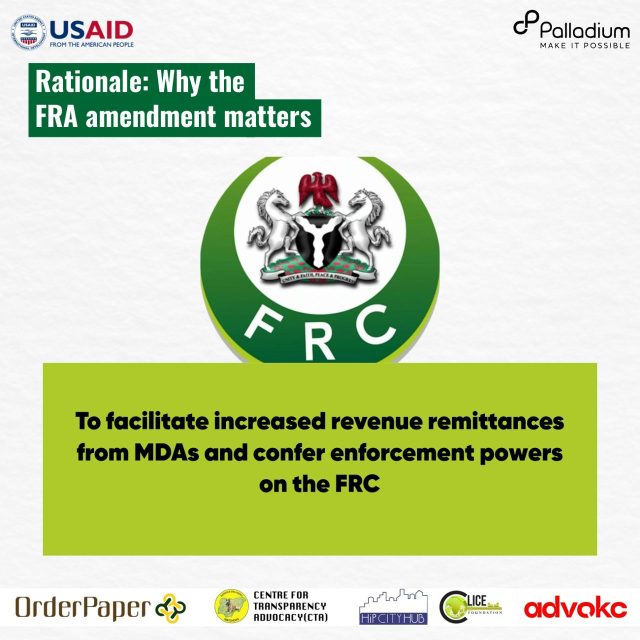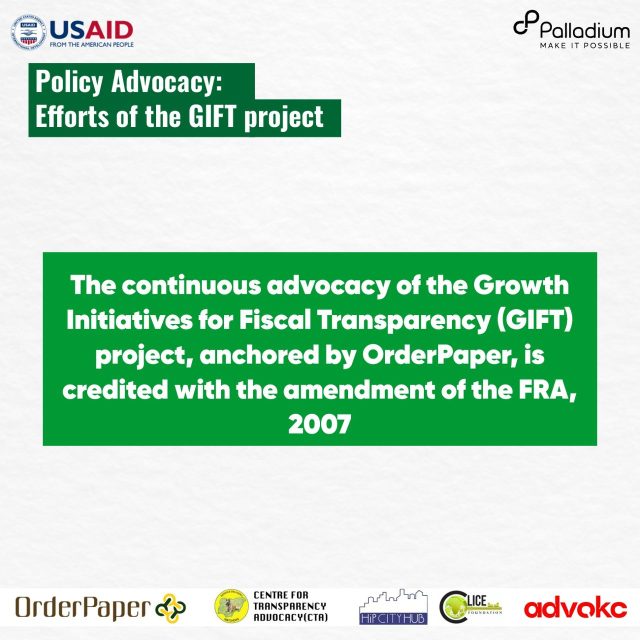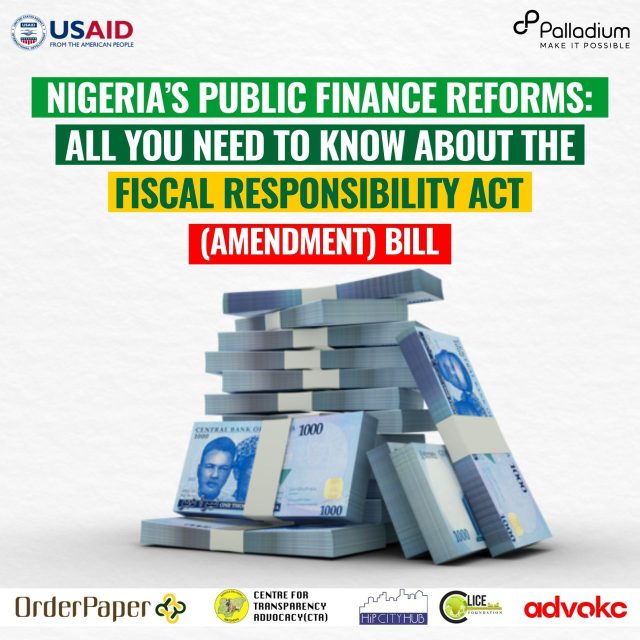Fiscal bills aimed at addressing loopholes in the existing framework and empower the Fiscal Responsibility Commission (FRC) scales second reading

In a bid to enhance Nigeria’s economic stability and strengthen the management of its financial resources, the House of Representatives on Tuesday passed for second reading a set of consolidated bills seeking to repeal the Fiscal Responsibility Act of 2007 and re-enact a new Fiscal Responsibility Act, 2024.
The proposed legislation, sponsored by the Deputy Speaker, Rep. Benjamin Okezie Kalu (APC Abia) and six others, aims to address loopholes in the existing framework and equip the Fiscal Responsibility Commission (FRC) with the tools necessary for effective enforcement and revenue generation.
OrderPaper recalls that the bill titled “A Bill for an Act to Repeal the Fiscal Responsibility Act, No.31 of 2007 and to Enact the Fiscal Responsibility Bill, 2024 to Provide for Prudent Management of the Nation’s Resources; ensure long Term Macro-Economic Stability of the National Economy; Secure Greater Accountability and Transparency in Fiscal Operations within the Medium Term Fiscal Policy Framework; and the Establishment of the Fiscal Responsibility Commission to ensure the Promotion and Enforcement of the Nation’s Economic Objectives, a Bill for an Act to Amend the Fiscal Responsibility Act, 2007, a Bill for an Act to Amend the Fiscal Responsibility Act, 2007 to Review the operating surplus and general Reserve Fund of Statutory Corporations and Government owned body Corporates and a Bill for an Act to Amend the Fiscal Responsibility Act, 2007 and for Related Matters (HBs1478, 71, 873 and 1097)” sponsored by the deputy speaker Rep. Benjamin Okezie Kalu, and six others, Rep. Oluwole Oke (PDP Osun) and Rep. Marcus Onobun (PDP Edo) and Rep. Oluwole Oke respectively were consolidated on October 3, 2024.
ALSO READ: FRA: Fiscal reforms key to addressing Nigeria’s rising debt

Leading the debate, Rep. Marcus Onobun said the FRA, 2007, which has been in operation for over one and half decade now, has been observed and found to contain certain loopholes and weaknesses. This, he said, has hampered its effective and efficient operation and the smooth achievement of its intendment.
Onobun argued that “the consolidated bills which seek to amend the Fiscal Responsibility Act, No. 31 of 2007 on one hand and also to repeal the Fiscal Responsibility Act, No. 31 of 2007 and to enact the Fiscal Responsibility Act, 2024 is to provide for prudent management of the nation’s resources; ensure long term macro-economic stability of the nation’s economy; secure greater accountability and transparency in fiscal operations within the medium term fiscal policy framework; and the establishment of the Fiscal Responsibility Commission to ensure the promotion and enforcement of the nation’s economic objectives.”
Following the present dire situation of the country’s public finance, Rep. Onobun stressed that it is important to reposition and strengthen the structure, functionality and effectiveness of the FRC through the repeal and re-enactment of the FRA.
According to him, the repeal and re-enactment will ultimately increase the commission’s capacity to, among other things, generate independent revenue into the Consolidated Revenue Fund (CFR) of the federal government.
- Proposed reviews
Highlighting the proposed reviews in the bills, Rep. Onobun noted that extant Fiscal Responsibility Act of 2007 comprise 57 sections, structured into 14 parts with one schedule, adding that it lists corporations and Government-Owned Enterprises (GOEs) directly covered. However, he said between the time of enactment and now, many other agencies have been added to or removed from the list pursuant to reviews undertaken by ministers of finance therefore bringing the total to 68 corporations and GOEs. These additions he noted have necessitated the need for review.

Other reviews mentioned by the lawmaker include expanding the powers of the commission, including conferring it with direct prosecutorial powers. This, he said, will greatly enhance the effectiveness of the commission to enforce the provisions of the law, especially in collaboration with anti-corruption agencies.
He stressed that without the contemplated prosecutorial powers, “the commission remains a mere toothless bulldog”.
The bill also calls for changes to the commission’s structure, including the appointment of a secretary subject to senate confirmation and making the chairman and secretary full-time members.
Other key amendments include increasing the commission’s funding to enhance service delivery and adjusting penalties for violations of the law.
- Addressing non-compliance with operating surplus remittance
Raising concerns about the failure of government corporations to remit their operating surplus to the Consolidated Revenue Fund, as mandated by the existing law, Onobun said under section 22 of the 2007 Act, these corporations are required to remit 80 percent of their surplus and keep 20 percent in their general reserve fund. He regretted that many have failed to comply with this provision and the proposed law seeks to introduce stricter penalties for non-compliance, including fines equivalent to the unremitted surplus.
“Any government corporation who fails to comply with subsection (1)(2) of section 22 as proposed in this bill, commits an offense and the chief executive officer of the corporation shall be liable on conviction to a fine equivalent to the operating surplus that was not remitted to the consolidated revenue fund of the federation.”
The speaker of the House, Rep. Tajudeen Abbas (APC Kaduna), who presided over the debate, put the question and thereafter referred the bill to the committee on finance for further legislative action.
OrderPaper Advocacy Initiative has led a cluster of civil society organisations (CSOs) to push for the FRA amendment bill since the commencement of the 10th National Assembly. With funding support from the United States Agency for International Development (USAID) under and technical support from Palladium International provided under the Strengthening Civic Advocacy and Local Engagement (SCALE) project, OrderPaper has been relentless in leading the advocacy for the vital policy reform. The cluster, operating as the Growth Initiatives for Fiscal Transparency (GIFT), comprised of five CSOs: Centre for Transparency Advocacy (CTA), HipCity Innovation Centre, CLICE Foundation, AdvoKC, and OrderPaper.

